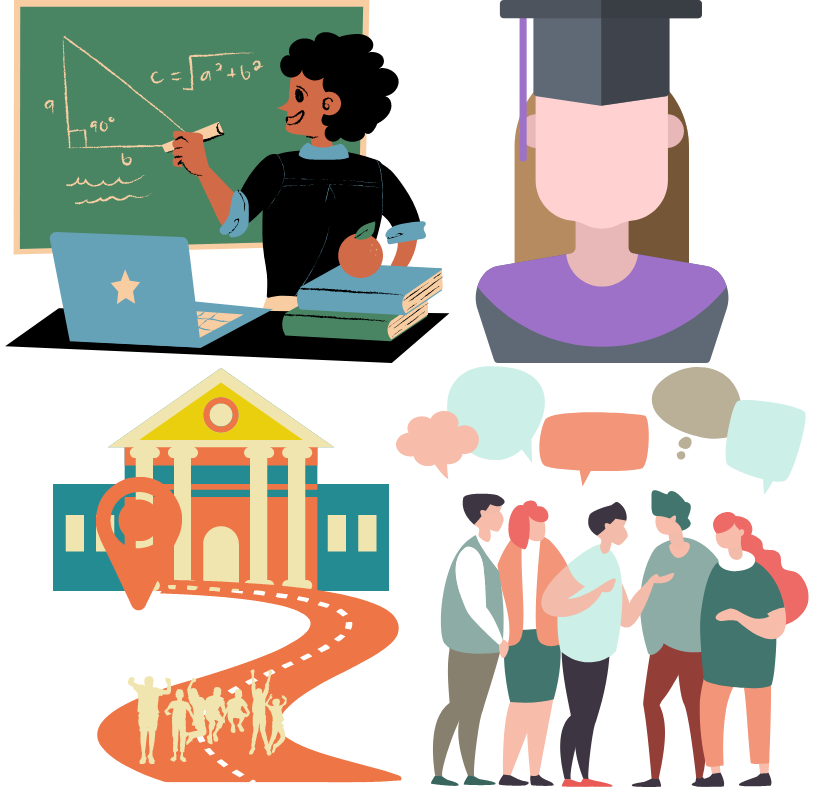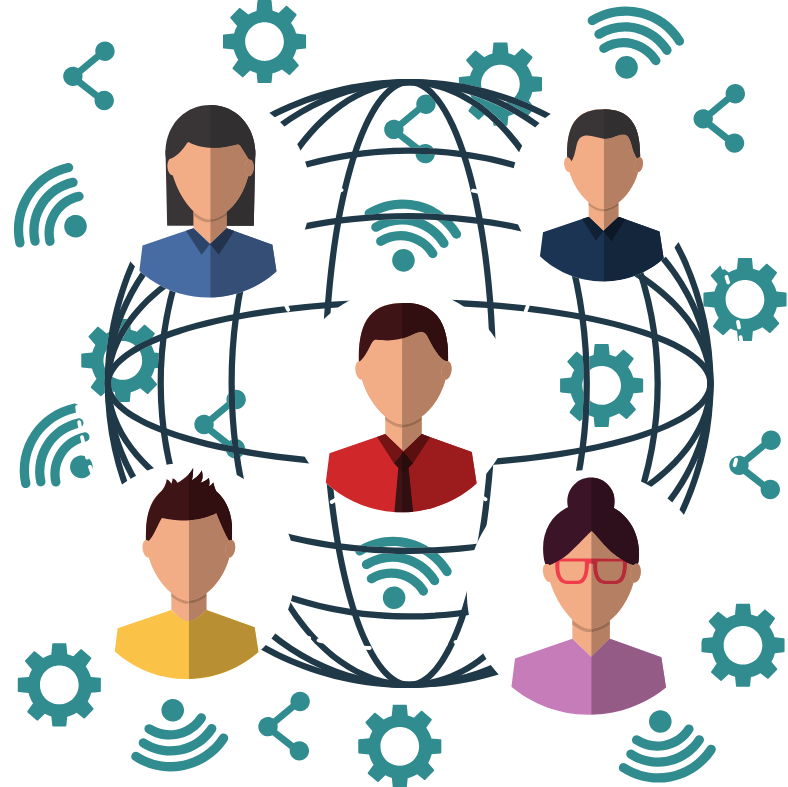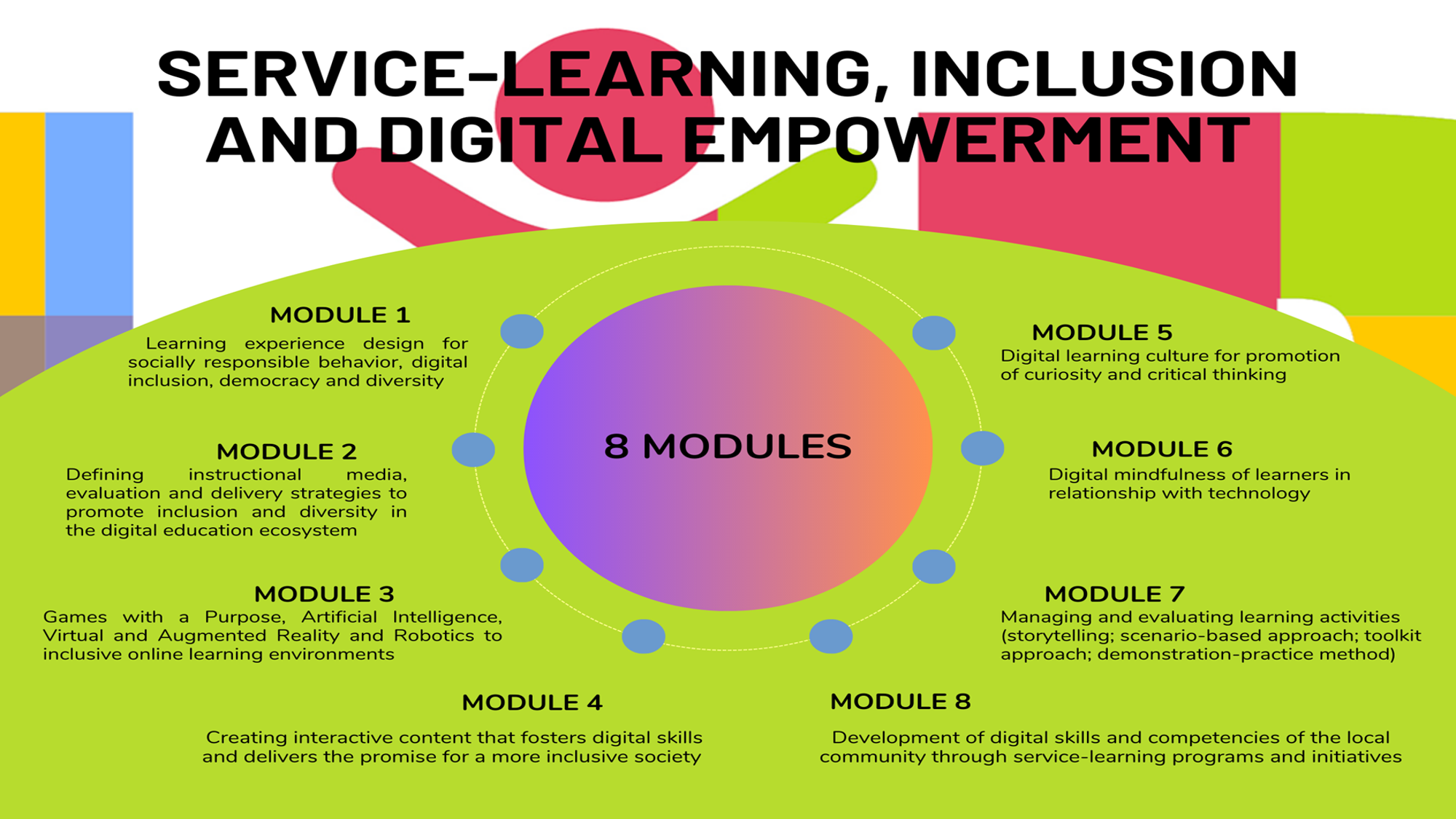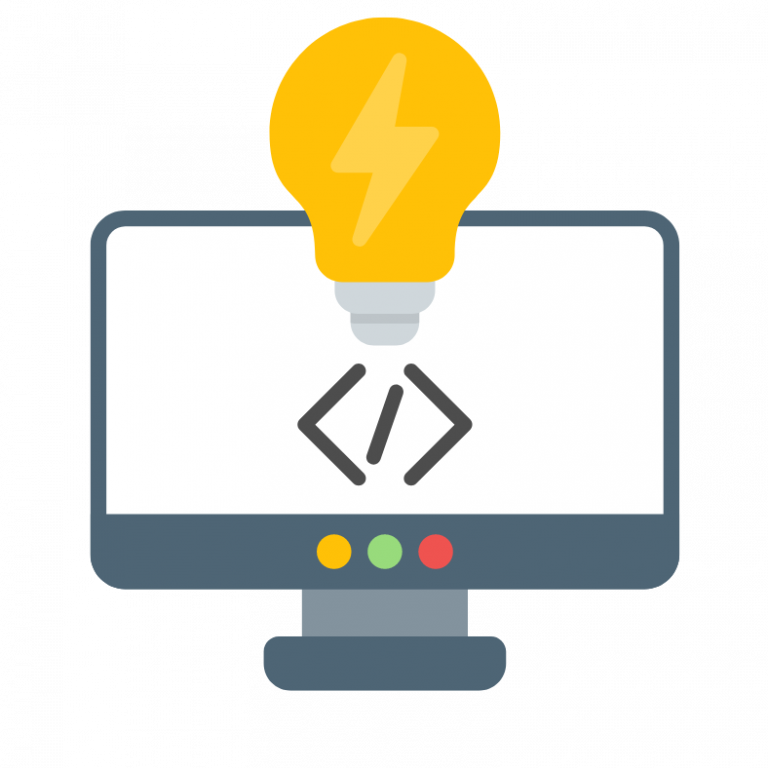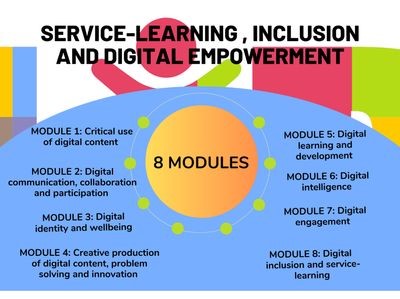
Service-Learning to promote Inclusion, Diversity and Digital Empowerment
Erasmus+ project
Erasmus+ project 2021-1-BE02-KA220-HED-000032235
Topic: Intertwine the service-learning pedagogy with digital empowerment to promote inclusion and diversity
Project timeline: 01/01/2022-31/12/2024
Project Objectives
- Collectively understand and promote service-learning as a pedagogical approach that promotes inclusion, diversity, and digital empowerment;
- Equip students with digital capabilities and skills necessary for the use of technology in creative, critical, competent, and inclusive ways through service-learning activities;
- Increase capacity and readiness of university teachers to manage an effective shift towards digital education and encourage them to purposeful and inclusive use of digital technologies for teaching, learning, assessment, and engagement;
- Facilitate exchange, flow, dissemination and co-creation of knowledge on service-learning and digital empowerment in Europe.
Partners
- University Centre Saint-Ignatius Antwerp (UCSIA) – Belgium (coordinator)
- Asociacion de Aprendizaje-Servicio Universitario (ApSU) – Spain
- Erasmus Universiteit Rotterdam (EUR) – Netherlands
- European Association of Service-Learning in Higher Education (EASLHE) – Belgium
- Hochschulnetzwerk Bildung durch Verantwortung e.V. (HBdV) – Germany
- Libera Universita Maria SS. Assunta di Roma (LUMSA) – Italy
- Pädagogische Hochschule Wien (PHW) – Austria
- Sveuciliste u Zagrebu (UNIZG) – Croatia
- Univerzita Mateja Bela v Banskej Bystirci (UMB) – Slovakia
- Universitatea Politehnica din Bucuresti (UPB) – Romania
Associated Partners
- CLAYSS – Argentina
- KU Leuven – Belgium
- PALECH – Spain
Project Description
The COVID-19 pandemic brought into sharp focus three acute needs of contemporary education:
- A need to digitally empower university teachers who rapidly have to transform from teaching professionals into designers of learning experiences and experts on emerging technologies;
- A need to close the gap between the self-perceived and actual digital competences of university students by equipping them with appropriate skills, and raising their awareness of digital inclusion of underprivileged and underrepresented groups;
- A need to combine the digital empowerment of teachers and students with the service-learning pedagogy, establishing connections between universities and communities at risk.
Following these three needs, members of EASLHE joined forces in creating an Erasmus+ proposal to investigate the potential of service-learning and digital empowerment for promoting inclusion and diversity. The overall goal of service-learning is to foster a sence of community engagement and civic responsibility in students and to motivate them to bring positive social change in society, while the goal of digital empowerment is to make an individual fit for the digital technology by placing that individual at the centre of education and drawing upon personal experiences to engage them.
Hence, the SLIDE project was born, aiming to intertwine service-learning and digital empowerment to promote inclusion and diversity. The project brings together students and academics from a wide rage of European higher education institutions to draw on existing practices, share knowledge and develop best practices in and with the community, where all become teaching resources, problem solvers and partners.
Outputs
The SLIDE project created the Service-Learning & Digital Empowerment Hub collecting all project outputs and best practices on the interlinkage between service-learning and digital empowerment.


